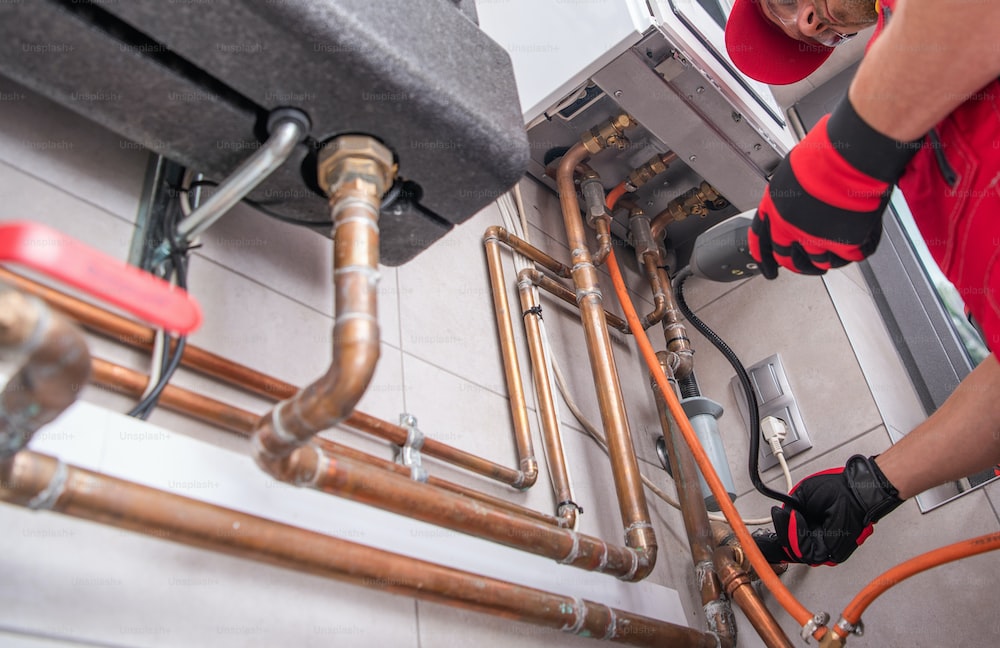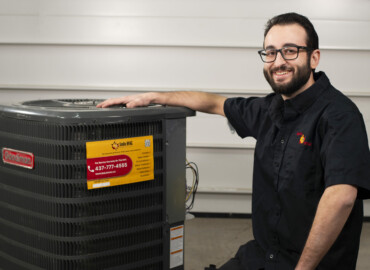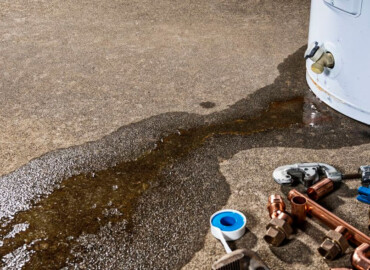How To Tell If Your Furnace is Leaking Gas? And What To Do?
As a homeowner, one of the most critical safety concerns you might encounter is a furnace gas leak. This guide will delve into the causes of a furnace gas leak, its warning signs, associated health risks, and the recommended actions to take when you suspect a leak.
Natural gas furnaces are found in many homes across North America. They’re efficient, affordable, and relatively easy to maintain. However, gas leaks can occur, posing potential risks such as illness and home fires.
Primary Causes of Furnace Gas Leaks
Gas leaks can occur in the gas supply line to your furnace, but they are more commonly caused by a cracked heat exchanger. Overheating is the number one cause of a cracked heat exchanger. Overheating can occur when there isn’t enough airflow through the furnace to dissipate heat safely. Causes of restricted airflow include a dirty furnace filter, duct blockages, ductwork that is too small, or a furnace and air handler that is too large for your home1.
Recognizing the Warning Signs of a Gas Leak
Identifying a gas leak early is crucial to minimize its potential risks. Here are the key signs to look out for.
- Scent of Mercaptan: Natural gas is odorless, so manufacturers add a chemical known as mercaptan to give it a detectable smell2. Mercaptan smells sulfur-like, similar to rotten eggs. If you detect a rotten egg smell near your furnace, coming out of your ductwork, or elsewhere in your home, you may be dealing with a gas leak1.
- Audible Hissing Sound: Gas is pressurized inside the system, so there could be a noticeable hissing sound near the leak as the gas escapes1. If you notice a hissing sound coming from around your furnace, this can be a sign that your unit is leaking gas3.
- Dying Houseplants: Natural gas can seep into the soil that indoor plants are potted in, interfering with the plant roots’ ability to absorb water and nutrients from the soil. This causes the plants to wither, and then die. If you’re confident your house plants are getting enough water and sun, and yet they are still dying, then have a heating contractor come take a look.
Health Risks Associated with a Gas Leak
Furnace gas leaks release harmful substances into the air, such as carbon monoxide (CO), which can cause symptoms in people who are exposed. CO is a tasteless, odorless, and colorless gas that can be extremely harmful[^5^]. Here are some symptoms to watch out for.
- Short-term Symptoms: The most common short-term symptoms of CO exposure include headaches, dizziness, nausea, sinus irritation, and difficulty breathing. Other symptoms may also include fatigue, memory and concentration problems, chest and stomach pain, vision problems, and loss of motor control1.
- Long-term Effects: In the long term, continuous exposure to gas leaks can lead to more severe health issues. These include fatigue, memory and concentration problems, chest and stomach pain, vision problems, and loss of motor control1. In extreme cases of exposure, you may suffer from a reddening of the skin and lips, unconsciousness, and even death1.
- Effects on Pets: A gas leak can even impact the health of your pets, causing them to feel disoriented or lethargic, or causing vomiting. Pets can also have trouble breathing or show red, watering eyes when in the presence of a gas leak3.
Steps to Take When You Suspect a Gas Leak
If you suspect a furnace gas leak, you should take quick action, even if you aren’t exhibiting any symptoms of exposure to gas or carbon monoxide. Here are some steps to follow.
- Turn Off the System: Shut your HVAC system off. This action will prevent the further release of gas into your home.
- Avoid Ignition: Avoid lighting matches or candles1. Any form of ignition could potentially ignite the gas and cause an explosion. Ventilate Your Home: Open doors and windows to ventilate your home1. This action will help to disperse the gas and lower its concentration in your home.
- Leave the Area: Evacuate your home immediately. Collect yourself and all pets and family members to evacuate the house immediately.
- Call Your Gas Company: You should call your gas company if you notice an emergency leak in your home before reentering. The fire department and your gas company can both inspect and get your gas line shut off.
Get Your Furnace Inspected: Once any emergency leak has been dealt with and your home is safe to enter, you will want to get your furnace inspected before using it again. An HVAC technician can test your system thoroughly for leaks and perform any required replacements or repairs. This will give you peace of mind that a leak is not likely to reoccur any time soon.
4 Warning Signs of a Furnace Gas Leak
Detecting a gas leak early is essential for your safety. Here are some common signs that may indicate a gas leak from your furnace:
- Sulfur Smell: The most obvious sign of a gas leak is a strong smell of rotten eggs or sulfur. If you detect this distinctive odor in your home, particularly near your furnace or vents, it is crucial to take immediate action.
- Hissing Sound: Gas leaks can sometimes produce a hissing sound, similar to the sound of escaping air. If you hear this sound near your furnace or gas lines, it could indicate a gas leak that requires immediate attention.
- Dying Plants and Discolored Grass: Gas leaks can have a detrimental effect on plant life. If you notice that your houseplants are wilting, dying, or showing signs of stress, it could be a result of a gas leak. Additionally, if you notice patches of brown or dead grass in your lawn, it may indicate an underground gas leak affecting the roots of your grass.
- Physical Symptoms: Gas leaks can cause a range of health symptoms, particularly if you have been exposed to the gas for an extended period. Symptoms can vary from mild to severe and may include headaches, dizziness, fatigue, nausea, chest pain, difficulty breathing, and even unconsciousness. It’s important to be aware of these symptoms and seek medical attention if you suspect a gas leak.
Preventive Measures and Maintenance Of Furnace Gas Leak
Taking preventive measures and regular maintenance can minimize the risk of gas leaks from your furnace. Here are a few steps you can take:
- Schedule Annual Furnace Inspections: Arrange for annual inspections of your furnace by a qualified HVAC technician. They will check for any signs of wear, cracks, or damage that could potentially lead to a gas leak.
- Replace Damaged or Aging Components: If your furnace or any of its components show signs of damage or aging, it is crucial to have them repaired or replaced promptly. This includes the heat exchanger, which is a common source of gas leaks.
- Install Carbon Monoxide Detectors: Carbon monoxide detectors are essential safety devices that can alert you to the presence of this odorless gas. Install them in key areas of your home, particularly near bedrooms and on each level of your house.
- Ensure Proper Ventilation: Proper ventilation is essential for the safe operation of your furnace. Ensure that vents and air intakes are not blocked by any obstructions, allowing for the free flow of air.
Professional Assistance and Expertise
When it comes to gas leaks, it is always best to seek professional assistance. HVAC technicians have the knowledge, skills, and specialized equipment to detect and repair gas leaks safely. They can also provide guidance on preventive measures and maintenance to ensure the ongoing safety of your furnace.
If you suspect a gas leak or require any furnace-related services, don’t hesitate to contact a reputable HVAC company. Their trained professionals can assess your situation, provide timely solutions, and offer expert advice tailored to your specific needs.
If you are looking for a furnace repair service in Toronto, Call us.
Conclusion
Being aware of the signs of a furnace gas leak is crucial for the safety and well-being of you and your family. By recognizing the warning signs, taking immediate action in case of a gas leak, and implementing preventive measures, you can minimize the risk of gas leaks and ensure the safe operation of your furnace. Remember, if you suspect a gas leak, prioritize your safety and contact a qualified HVAC professional for assistance. Stay informed, stay vigilant, and protect your home from the potential dangers of a gas leak.




